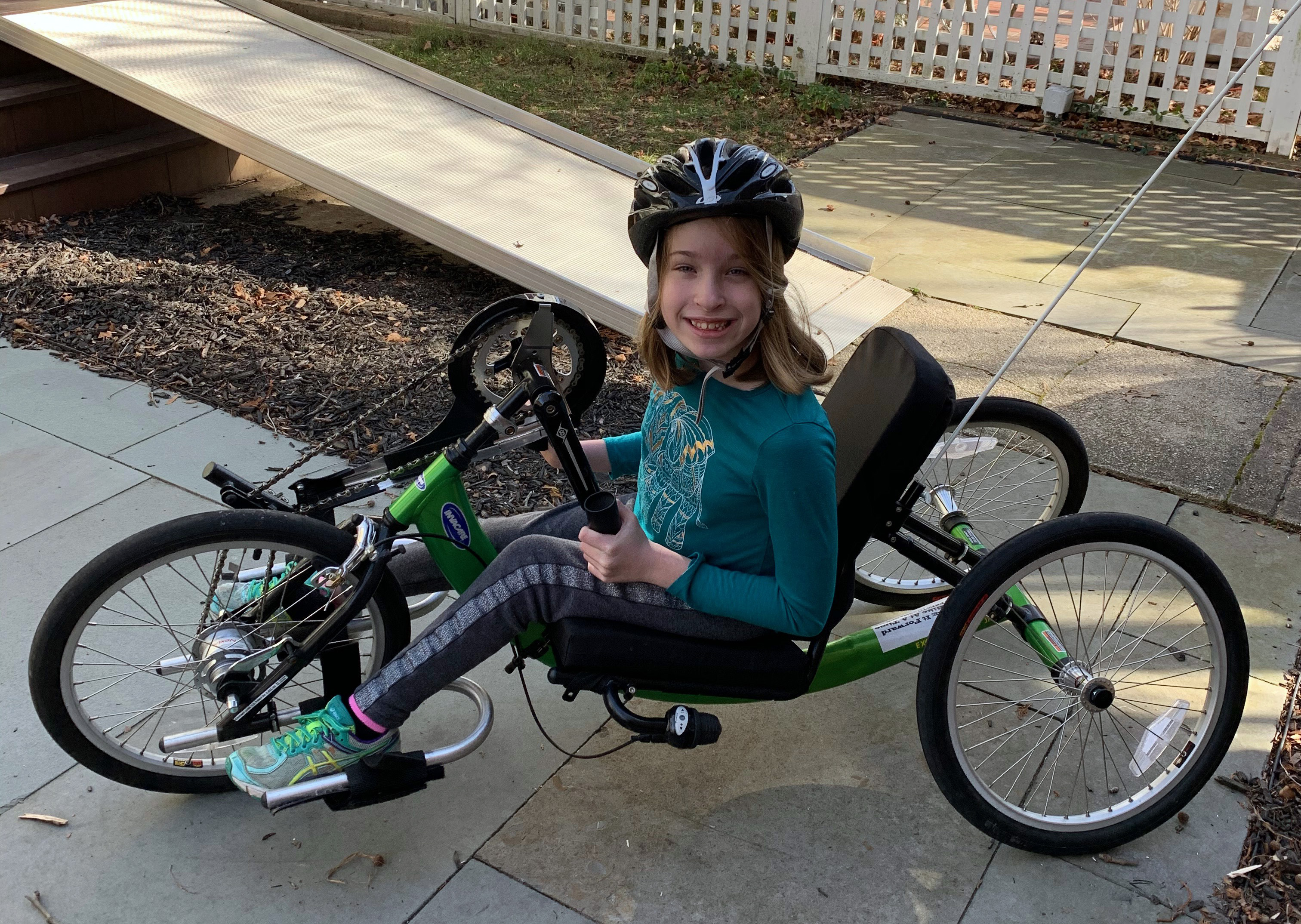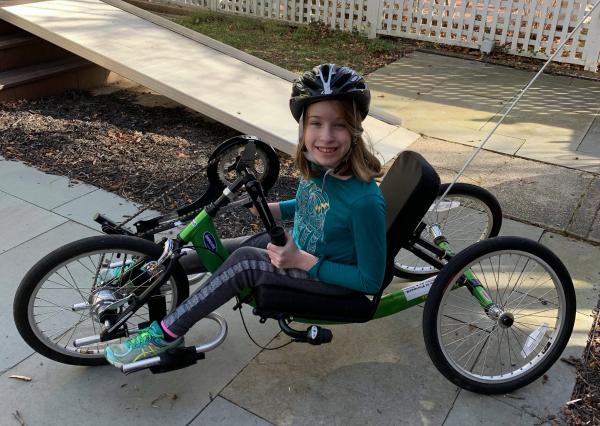KID REPORTERS’ NOTEBOOK
A Bike for Every Kid


Ten-year-old Alexis Wolff of Wilmington, Delaware, enjoys a ride on her bike.
“We make it possible for everyone to ride a bike,” says Deb Buenaga, executive director of Preston’s March for Energy. The nonprofit organization, which is based in Wilmington, Delaware, raises money for adaptive bikes for children and adults with special needs.
An adaptive bike typically costs more than $1,000, making it far more expensive than a conventional bike. Preston’s March for Energy tries to cover the expense, helping all kids enjoy the experience of freedom and fun.
“When I got my bike, it made me feel amazing, like I was on the top of the world,” said Alexis Wolff, 10, of Wilmington.
Alexis got her handcycle-style bike in 2014, when she was 5 years old. She has enjoyed riding it with her family ever since.
Sophia with Preston and Deb Buenaga
PAYING IT FORWARD
The organization was founded in 2011, Buenaga said, after her son, Preston, received his bicycle.
Preston was diagnosed with Mitochondrial Disease as a young child. The disease affects muscles, causing low energy levels and developmental delays.
Preston, who is now a teenager, cannot ride an ordinary bicycle. The Buenaga family found a photo of an adaptive bike on the Internet, but it cost $2,200. To their amazement, a friend in California heard about the bike and raised enough money to buy it in just five days. Soon, Preston was riding his new bicycle.
“We saw the smiles and happiness the bicycle created, and we wanted to pay it forward,” Buenaga said. “So that’s what we do.”
Since its founding, Preston’s March for Energy has given away more than 4,000 bikes in 34 states. In 2019, the organization was able to donate a record 87 bikes.
“When we give away a bike, we don’t ask the families to pay anything,” Buenaga said. “We just ask for them to pay it forward in some way.”
ENCOURAGING INCLUSIVITY
Preston’s March for Energy teaches all kids about the importance of inclusivity, acceptance, and giving back. In 2019, the organization celebrated National Disability Day by giving away A Bike to Call Their Own, a book about their son and other special-needs children, to teachers who wanted to share the story with their students.
When asked about some of the organization’s greatest triumphs, Buenaga recalled “one notable story” about a boy born with spina bifida, a condition that affects the spine. Spina bifida makes even walking difficult. At the age of 15, the boy was given an adaptive handcycle. “Two years later,” Buenaga said, “he rode the Disney marathon.”
Buenaga also cited a girl born with cerebral palsy, which affects movement, muscle tone, and balance. She now completes in half marathons.
One boy who recently received a bike had been told by doctors that he would never walk, talk, or even smile. The day he rode his bike for the first time, he had a big smile. “That’s what it’s all about,” Buenaga said.
Buenaga encourages kids to spread the word about Preston’s March for Energy and its mission. Raising funds for adaptive bikes through lemonade stands and bake sales is encouraged.
Buenaga said that after a fifth-grade boy got his adaptive bike, the entire school raised money by selling Rainbow Loom bracelets. They collected $4,000!
